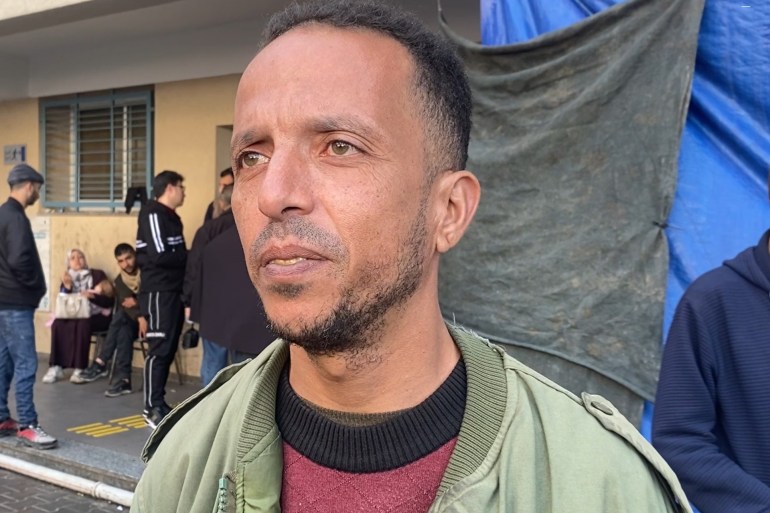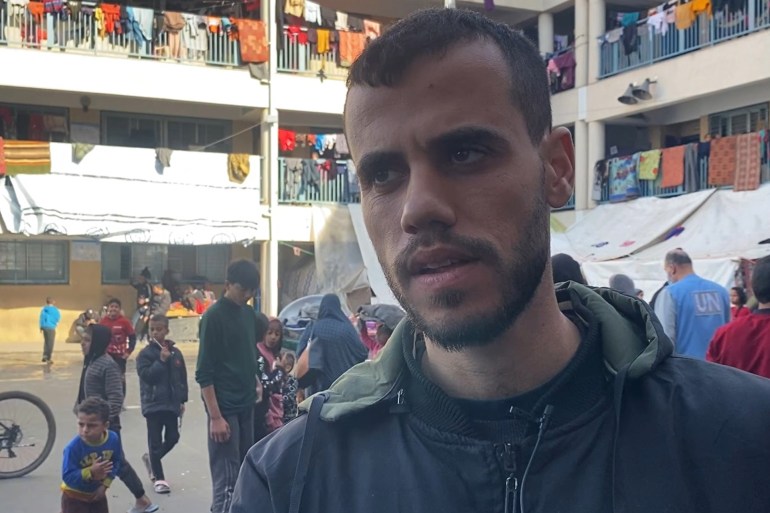Palestinians released by occupying forces: We suffer abuses and horrific detention conditions policy

Gaza – Palestinian detainees released by the Israeli occupation authorities say they were subjected to abuse and horrific conditions of detention.
The Palestinian Transit Authority in Gaza, part of the Gaza government, said the occupying forces on Tuesday released 110 Palestinians arrested during the Gaza war that began on October 7 last year.
The Geneva-based Euro-Mediterranean Observatory for Human Rights said there was no accurate count of the number of detainees in the Gaza Strip due to Israel's policy of enforced disappearances. However, preliminary estimates suggest that more than 3,000 people were arrested, including at least 200 women and girls.

They stripped me naked and tied me up with irons
Ziad Eliwa, 62, who was released by the occupation authorities on Tuesday, January 9, 2024, described how he was tortured by the occupying forces despite his advanced age.
Aliwa told Al Jazeera that he was at a shelter affiliated with the United Nations Relief and Works Agency for Palestine Refugees in the city of Rafah in the southern Gaza Strip when he was arrested on November 18 while crossing the checkpoint that separates the north from the north. Southern Gaza Strip.
The army has ordered residents of the northern Gaza Strip to evacuate southward and set up checkpoints south of Gaza City, forcing displaced families to pass.
Aliwa added: “As I passed through the checkpoint, a soldier stopped me, detained me, asked me to take off all my clothes, cuffed my hands with iron handcuffs and dragged me to an overgrown area. Where the thorns caused my feet to be trampled.” I was torn and I still bear the pain of them to this day. “
The released prisoner continued: “They gathered me and other detainees together and we were severely beaten and obscenely insulted. The more we screamed, the more we were beaten.” This indicated that the soldiers did not allow them to urinate or defecate.

Surveys and questions about tunnels
Fourteen days later, Aliwa was transferred to Israeli intelligence for interrogation, adding, “They asked me where I was on October 7, when I witnessed the Al-Aqsa flood attack, and what I thought about the Hamas movement and the 'kidnapping' How much do the Israelis know?” in Gaza. “
Investigating officials also asked Eliva about the location of tunnels dug by the Palestinian resistance in his area and about people linked to Hamas.
He continued, “Every time I told him: I don't know, they beat us really hard.”
Later, Eliva was transferred to the Negev prison and was kept with 14 detainees in a room of about 20 square meters, with a toilet and water supply for one hour a day. He added, “We are waiting for water to arrive to remove the dirt from the bathroom.”
He said they had not changed their clothes at all, including their underwear, since the day of their arrest 53 days ago. They were not allowed to bathe, nor were they provided with any type of soap or detergent.
As for food, he said, “They only prepare one meal for us every day. At night, one egg, four small slices of bread, and a small plate of rice. There is no breakfast. If there is breakfast, it is half a cup of yogurt.”

Cold and death in prison
After 25 days, Aliwa was moved to a tent house, explaining that it was cold and there was not enough cover. He continued, “We suffered from the cold and they gave us a thin blanket, but despite the cold, they refused to bring us extra blankets.”
Eliva said despite his age and the wounds on his feet, he did not see a doctor. It was revealed that one of the detainees from the “Karab” family, about 75 years old, died in prison. He suffered from multiple diseases and was unable to urinate or defecate.
He added that the occupying forces mistreated the detainees as they chanted “God is great” after he was found dead, explaining that he refused to allow them to perform his funeral prayers.
Two days before his release, Elivar revealed that occupation soldiers took him to an area in the Negev desert where he was severely mistreated, being beaten and pushed to the ground.He added: “The soldiers brought Israeli children, they insulted us, took pictures of us, laughed at us“.
The detainee remained in this position for approximately six full hours, not being allowed to lift his head off the ground, explaining that the restraints healed an old injury on his foot and caused it to bleed.
In the same context, Mohammad Tashtash stated that he was arrested at his home in the Beit Lahiya project area and detained for about a month.
He added to Al Jazeera, “We were tortured and provocative tactics were used. We were beaten and humiliated. We were stripped naked and our pictures were posted on the Internet.”

Theft and provocation methods
On the way back to Gaza, Aliwa explained that the occupying forces had stolen their money, phones, clothes and personal identification cards.
Hossam Odeh, a former detainee from the Al-Zaytoun neighborhood in eastern Gaza City, said he was arrested on December 4 and subsequently detained for 25 days.
He added to Al Jazeera that they were arrested from their homes and the army told them they would be moved to safe areas, but he put them in jail. He pointed to the traces of iron handcuffs still remaining on his hands and said, “I was severely tortured. These are some of the traces.”
Regarding the methods of torture, he said: “I was forced to remain in an uncomfortable position, kneeling, all day long, and only slept for an hour.”
Hossam explained that the army brought them food and drink after three days of detention, which included one daily meal: bread and cheese.
Source link





